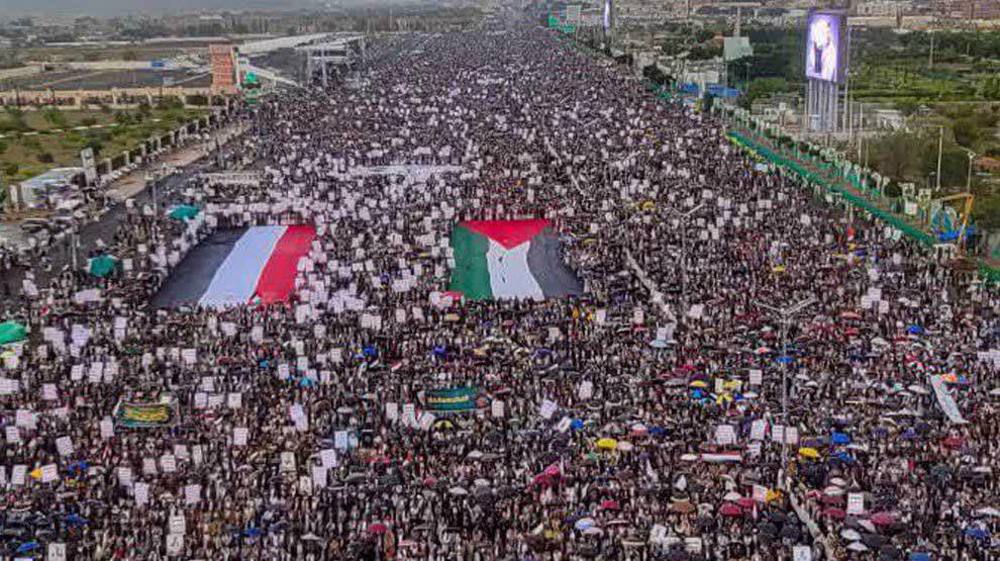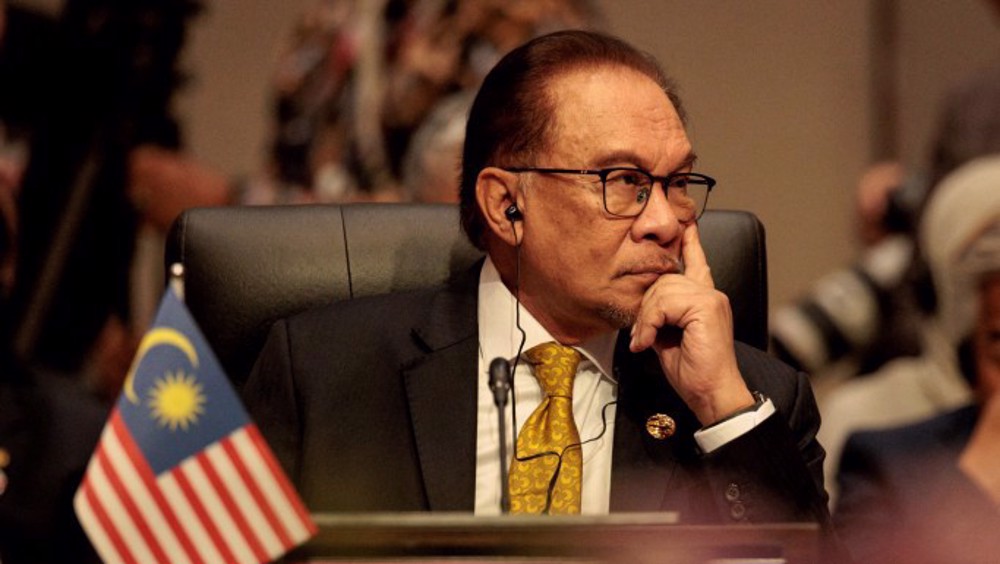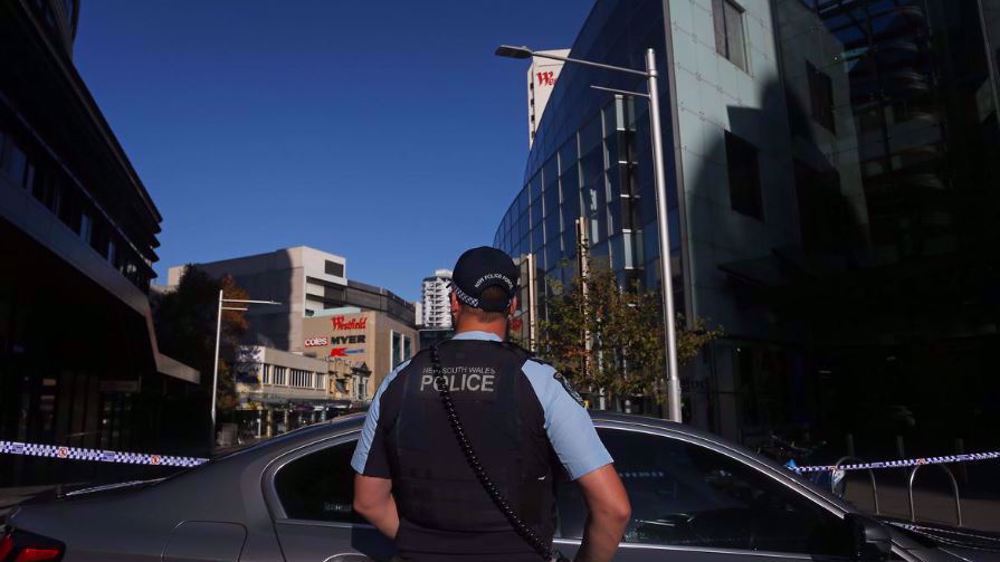Myanmar laying landmines near Bangladesh border: Sources in Dhaka
Myanmar has reportedly been planting landmines across an area of its border with Bangladesh as thousands of Rohingya Muslims are fleeing a bloody crackdown to take refuge in neighboring Bangladesh.
Two government sources in Bangladesh told Reuters on Wednesday that Myanmarese forces had been “putting the landmines in their territory along the barbed-wire fence,” between a series of border pillars over the past three days.
“Our forces have also seen three to four groups working near the barbed wire fence, putting something into the ground,” one of the sources said on condition of anonymity.
The sources, who had direct knowledge of the situation, said Myanmar was probably putting the landmines to prevent the return of the Rohingya Muslims who have already fled to Bangladesh.
But those members of the minority Muslim group who plan to flee Myanmar are also likely to use the path and risk hitting the mines.

The sources said Dhaka would formally file a protest against the planting of the landmines later on Wednesday.
‘Explosions injure civilians, two maimed’
According to a Bangladeshi border guard officer, at least two explosions were heard on Tuesday on the Myanmarese side of the border.
Border guard Manzurul Hasan Khan said two Rohingya children had been injured by the blasts — one of them having had his left leg blown off before being brought to a hospital in Bangladesh.
“They stepped onto some sort of explosives this morning and one of them lost his leg,” Khan said.
Two other explosions occurred the day earlier just after the Myanmarese army forces left the site on Monday afternoon, Rohingya refugee witnesses said.
Khan said a Rohingya woman had lost a leg in one of those blasts.
He further said many refugees had been arriving in Bangladesh with bullet wounds.

The UN estimates that some 146,000 Rohingya Muslims — including women and children — have arrived in Bangladesh since last month, when the Myanmarese military unleashed new violence on the community.
The refugees who have recently made it to Bangladesh have told horrific accounts of massacres in villages. They have said the military forces attack and burn villages and shoot civilians.
Many of the Muslims have as a result decided to take perilous boat journeys across the Naf River, which separates Myanmar from Bangladesh.
Myanmar’s military intensified attacks on Rohingya Muslims on August 25, after dozens of police and border outposts in the northern state of Rakhine came under attack by an armed group that is said to be defending the rights of the Rohingya.

The Muslim community had already been under a military siege in Rakhine since October 2016. The government used a militant attack on border guards back then as the pretext to enforce the lockdown.
The Rohingya have also been subject to communal violence by extremist Buddhists for years.
Yemen’s Houthi leader slams violence against Rohingya
Meanwhile, the leader of Yemen’s Houthi Ansarullah movement, Abdel Malek al-Houthi, has denounced the ongoing violence against Rohingya Muslims in Myanmar.
In a statement on Tuesday, he called on the international community to take immediate action and stop the killing of the Rohingya.
The Houthi leader accused the United States of supporting the Myanmarese regime.
Su Kyi claims reports about violence are ‘fake news’
Meanwhile, Myanmar’s de facto leader, Aung San Suu Kyi, has broken her silence on the violence in Rakhine but has made the bizarre claim that “a huge iceberg of misinformation” has been spreading about the issue.
Speaking on the phone with Turkish President Recep Tayyip Erdogan, she said that there had been many fake news articles and photographs on social media, which were “simply the tip of a huge iceberg of misinformation calculated to create a lot of problems between different communities and with the aim of promoting the interest of the terrorists.”
The Nobel Peace Prize laureate has been under fire for failing to denounce the mass killings and displacement of thousands of Rohingya Muslims by her government despite the many witness accounts by the Rohingyas themselves as well as foreign journalists.
In her conversation with Erdogan, she claimed that Myanmar “was working to protect the rights of the Rohingya.”
The Turkish president recently said the Rohingya were facing “genocide” in Myanmar.
Five Rohingya children drown in Naf River
Separately, at least five Rohingya children drowned after their boats sank in the Naf River.
Bangladeshi authorities said at least four boats packed with Rohingya Muslims had sunk in the river early Wednesday morning.
“So far, the bodies of five male and female children have been found at different locations,” said border guard officer Aloysius Sangma.
Rallies in Indonesia
In a third consecutive day of protests against the Myanmarese government, thousands of Indonesians gathered outside Myanmar’s embassy in the capital, Jakarta, on Wednesday.
The protesters called on Jakarta to cut ties with Myanmar over the military crackdown against the Rohingya Muslims.
Indonesia has the world’s largest Muslim population.
VIDEO | Press TV's news headlines
Iran censures US veto of Palestinian request for full UN membership
Over 14,000 kids killed in Israel’s war on Gaza: UNICEF
VIDEO | Iran’s National Army Day marked at the Iranian embassy in Moscow
VIDEO | Iranian culture fosters further development, understanding in SA
VIDEO | People in Amman hold protest in support of Palestinians
French police arrest man after threatening to detonate himself at Iran consulate
Yemenis, Jordanians reiterate support for Palestinians in Gaza














 This makes it easy to access the Press TV website
This makes it easy to access the Press TV website